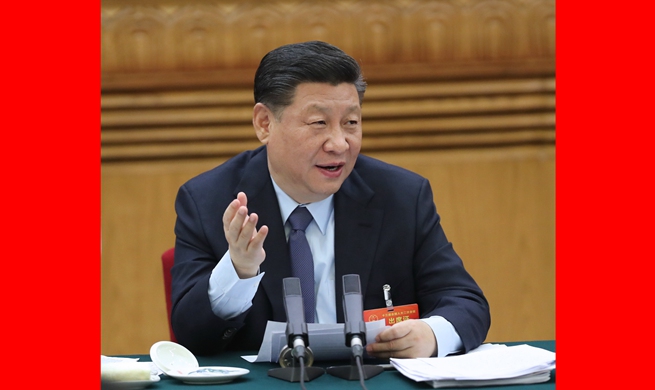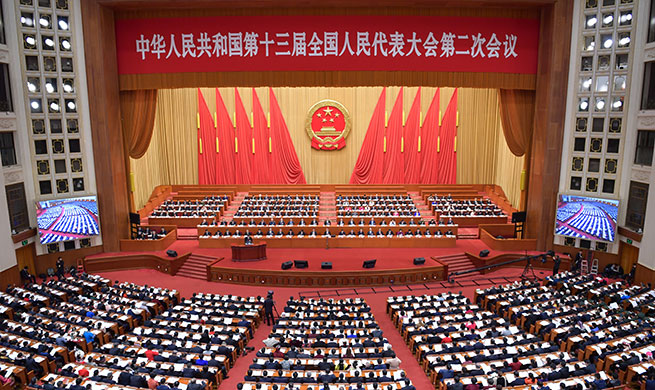by Xinhua writer Wang Xiaopeng
NAIROBI, March 12 (Xinhua) -- China has made remarkable progress in improving its air quality and reducing pollution, according to a scientist during the ongoing fourth session of the United Nations Environment Assembly (UNEA), which opened in Nairobi on Monday.
In a span of 10 years, China has improved its air quality and adopted various eco-friendly means of transport for a better environment, Kelvin Khisa, a senior research scientist at the Kenya Industrial Research and Development Institute, told Xinhua in an interview on the sidelines of the meeting.
"China's pollution solution is working. I visited Beijing this January for training after 10 years and there is remarkable transformation. The air quality is better than 10 years ago," said Khisa.
China has met its annual target for pollution control in 2018, with more blue skies, cleaner waters and greener mountains, according to a work meeting of China's Ministry of Ecology and Environment in January.
Official data showed that the air quality in China improved last year, with 338 major cities reporting good air quality on 79.3 percent of days, up 1.3 percentage points from the previous year.
The density of PM2.5, a key indicator of air pollution, dropped by over 10 percent in 2018 from the previous year in China's three heavily-polluted areas, including the Beijing-Tianjin-Hebei region, according to the ministry.
In terms of soil pollution control, China had reduced solid waste imports by 46.5 percent year on year, finished overhauls of all subpar garbage power plants, and launched a sweeping crackdown on the illegal transportation and dumping of hazardous waste in 2018, the ministry said.
Khisa said China's determination to improve the environment has paid off.
"While in China, I came across a circular economy and cleaner production within its industrial parks and this is yielding excellent results. China has eco-industrial parks that are resource efficient," said Khisa.
"This is in 10 years' time, the change is amazing," he added.
This year, China will cut energy consumption per unit of gross domestic product (GDP) by around 3 percent. Sulfur dioxide and nitrogen oxide emissions will be cut by 3 percent, and there will be a continuous decline in overall PM2.5 density.
Commenting on the move, Khisa said the pledge to reduce energy consumption per unit of GDP will drive China's "energy efficiency and eco-innovation in the private sector."
The scientist said the actions to cut sulfur dioxide and nitrogen oxide emissions would lead to less acidification of rains and cleaner soil and lakes.

















